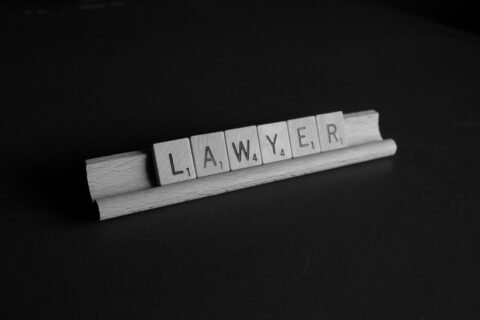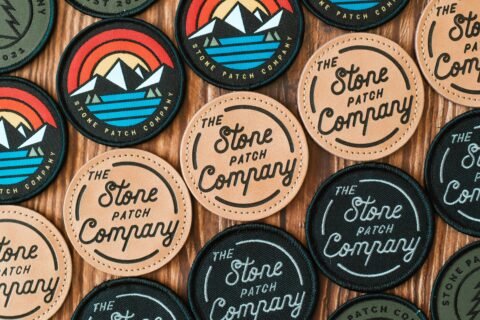Interviews can be nerve-wracking, but they’re also a unique opportunity to showcase your skills, personality, and readiness for the role. Whether it’s your dream job or the next step in your career, making a lasting impression is key to standing out from other candidates. By preparing effectively, understanding the employer’s expectations, and mastering the art of communication, you can confidently navigate even the most challenging interview scenarios. This guide will help you ace your next interview with strategies designed to leave a positive, lasting impression.
Walking in Prepared
Preparation is the foundation of a great interview. Candidates should be informed about the business, the position, and the sector, according to employers. However, preparation goes beyond basic research—it also involves anticipating the types of questions you’ll be asked and knowing how to respond effectively. In particular, situational interview questions often come up as a way for employers to gauge your problem-solving abilities and decision-making process. These questions typically ask you to describe how you’ve handled specific challenges or tasks in the past, providing insight into your thought process and behavior under pressure. Preparing for these questions requires reflecting on your experiences and identifying examples that highlight your strengths.
For instance, consider practicing the STAR method: Situation, Task, Action, and Result. This structured approach helps you clearly and concisely articulate your past experiences. Additionally, researching common situational questions for your field can give you a sense of what to expect and ensure you’re not caught off guard. Walking into an interview with this level of preparation will boost your confidence and demonstrate your commitment to the role.
Dressing the Part
A big part of creating a first impression is how you look. Dressing appropriately for the company’s culture shows respect for the opportunity and helps you fit into the workplace environment. For formal industries like finance or law, a well-fitted suit is often expected, while more creative fields might call for business casual attire.
To ensure you’re dressing correctly, look up the company’s dress code or ask the recruiter for guidance. While your qualifications matter most, your attire is a visual representation of your professionalism and attention to detail. Avoid overly flashy or distracting clothing, and focus on presenting a polished, confident image.
Non-verbal Communication
While your words carry significant weight during an interview, your non-verbal communication also speaks volumes. From your handshake to your posture, these subtle cues can influence how an interviewer perceives you.
Maintain eye contact to convey confidence and attentiveness, and remember to smile genuinely—it creates a positive atmosphere and shows you’re approachable. Sit up straight and avoid crossing your arms, as this can appear defensive. When answering questions, use natural gestures to emphasize key points, but avoid fidgeting or overdoing it.
Active listening is another crucial component of non-verbal communication. Nod slightly when appropriate to show you’re engaged, and don’t interrupt the interviewer. These small actions create a respectful and professional impression that enhances your overall presentation.
Articulating Your Value
One of the most critical aspects of an interview is effectively communicating why you’re the best fit for the role. This means going beyond reciting your resume and instead focusing on how your skills and experiences align with the company’s needs.
Start by reviewing the job description in detail. Identify the key skills and qualifications required, and think about how your background demonstrates those abilities. Use specific examples to back up your claims, emphasizing quantifiable achievements whenever possible.
For example, instead of saying, “I improved customer satisfaction,” try, “I implemented a new feedback system that increased customer satisfaction scores by 15% over six months.” These details make your contributions tangible and memorable.
Additionally, tailor your responses to the company’s goals and values. Showing that you understand and align with their mission demonstrates your genuine interest in the role and helps you connect with the interviewer on a deeper level.
Asking Insightful Questions
An interview isn’t just about the employer evaluating you—it’s also an opportunity for you to assess whether the role and company are a good fit for your goals. Asking thoughtful questions shows your interest in the position and helps you gather valuable information to make an informed decision.
Some examples of insightful questions include:
- Could you elaborate on the group I would be collaborating with?
- What constitutes success in this position within the first six months??
- In what ways does the organization foster professional development?
Avoid asking questions about salary or benefits in the initial interview unless the employer brings it up. Instead, focus on topics that demonstrate your enthusiasm and curiosity about the company’s operations and culture.
Handling Challenges Gracefully
No interview is without its hurdles. Whether it’s a tricky question, a momentary lapse in memory, or a technical hiccup, how you handle challenges can say a lot about your resilience and problem-solving skills.
If you’re stumped by a question, don’t panic. Take a moment to collect your thoughts, and if needed, ask for clarification. It’s better to admit you need a moment than to ramble or provide an irrelevant answer.
For instance, if asked about a skill you lack, acknowledge it honestly but pivot to highlight your willingness to learn. For instance: “Even though I don’t have a lot of experience with X, I’ve just started taking classes to increase my knowledge because I know it’s crucial for the position.” This approach demonstrates humility and a proactive attitude, leaving a positive impression even in challenging situations.
Following Up
Your work isn’t done when the interview ends. Sending a follow-up email within 24 hours is a simple yet effective way to reinforce your interest in the role and thank the interviewer for their time.
In your email, reference specific points from the conversation to personalize your message. For example, if you discussed a particular project or challenge, mention how it resonated with you and why you’re excited about contributing to it. This small gesture shows your professionalism and enthusiasm, helping you stand out from other candidates who might skip this step.
Making a lasting impression in an interview requires a combination of preparation, communication, and authenticity. By anticipating situational questions, dressing appropriately, and articulating your value, you can present yourself as a confident and capable candidate. Don’t forget to follow up after the interview to leave a final positive impression. With these strategies in mind, you’ll be well-equipped to handle any interview and take the next step in your career.

Daniel J. Morgan is the founder of Invidiata Magazine, a premier publication showcasing luxury living, arts, and culture. With a passion for excellence, Daniel has established the magazine as a beacon of sophistication and refinement, captivating discerning audiences worldwide.





